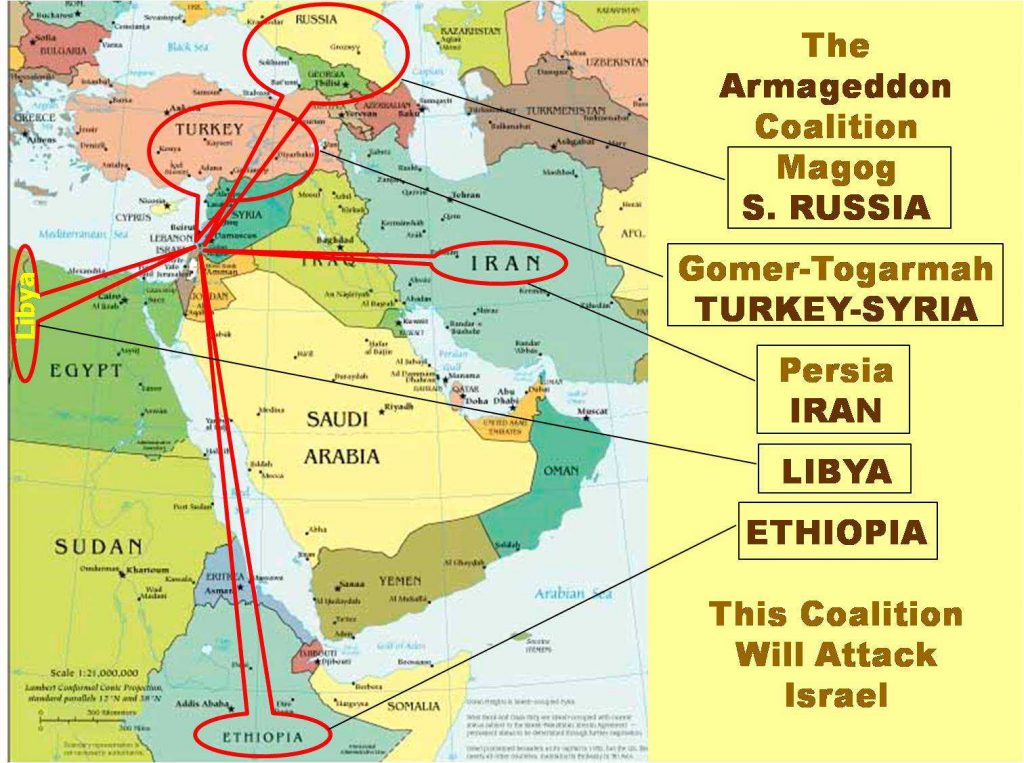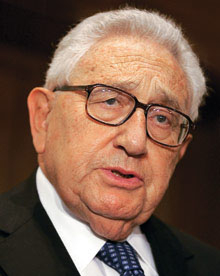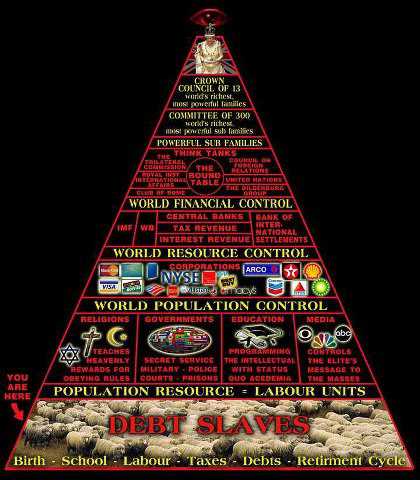
Most US citizens believe that the US is a country & the President is the most powerful man on earth. The US is not a country. It is a corporation. And the president is President of the Corporation of the United States. He & his elected officials work for the corporation, not for the American people. Since the US is a corporation, who owns the corporation of the United States?
*WARNING* FB have BANNED ALL LINKS to this text. Circulate by way of photo and text.
(We’ll see if they take this down)
THE HIDDEN EMPIRE:
1. City States.
Did the world wars, revolutions & big events of human history happen naturally or coincidentally, or were they calculated & pre-planned? If they were pre planned, who planned them?
The answer to this question can be found within the boundaries of 3 of the worlds most powerful cities. Those 3 cities belong to no nation & pay no taxes. They are Washington’s District of Columbia, which is not part of the City of Washington or the US. The inner city of London, which is not part of London or England & Vatican City, which is not part of Rome or Italy.
These cities, called City States, have their own independent flag, their own separate laws & their own separate identity.
2. Vatican City – Spiritual Capital.
Gracing the walls of St Peter’s Basilica is the Vatican-approved image of God. An angry bearded man in the sky, painted by Michael Angelo. Cruel/violent images of God’s tortured son, suffering, bleeding & dying with thorns gouged through his skull/nails pounded through his feet & hands are on display throughout the Vatican. These images serve as reminders that God allowed his son to be tortured & killed to save the souls of human beings who are all born sinners.
The Vatican rules over approximately 2bn of the worlds 6.2bn people. The colossal wealth of the Vatican includes enormous investments with the Rothschilds in Britain, France, USA, with giant oil & weapons corporations like Shell & General Electric. The Vatican solid gold bullion, worth billions is stored with the Rothschild controlled Bank of England & the US Federal Reserve Bank.
The Catholic Church is the biggest financial power, wealth accumulator and property owner in existence, possessing more material wealth than any bank, corporation, giant trust or government anywhere on the globe.
While 2/3 of the world earns less than $2 a day & 1/5 of the world is underfed or starving to death, the Vatican hoards the world’s wealth, profits from it on the stock market & at the same time preaches about giving.
So how did the Vatican accumulate all that wealth over the millennium? One method was to put a price-tag on sin. Many bishops & popes actively marketed gilt, sin & fear for profit, by selling indulgences. Worshippers were encouraged to pre-pay for sins they hadn’t yet committed & get pardoned ahead of time. Those who didn’t pay-up risked eternal damnation. Another method was to get wealthy land owners to hand-over their land/fortune to the church on their death bed, in exchange for a blessing which would supposedly enable them to go to heaven.
Pope Leo the fifth rebuilt St Peter’s Basilica, by selling tickets out of hell & tickets to heaven.
During the dark ages, the Catholic Church not only hoarded the wealth they collected from the poor, but they hoarded knowledge. They kept the masses ignorant & in the dark by denying them a basic education. They also prohibited anyone from reading or even possessing a Bible, under pain of death.
Between 1095-1291 AD the Pope launched 7 blood baths called the Christian Crusaides, torturing, murdering, beheading & mass murdering hundreds of thousands of Muslims & Jews in the name of God. The Pope’s brutal solders were called Knights Templar or Knights of the Temple of Solomon & evolved into today’s secretive brotherhood called the Freemasons.
Between 1450-1700 AD the Catholic Church followed up their holy terror with the inquisition. Based on rumours of practicing witchcraft, the Catholic Church hunted down, tortured & burned-alive 10’s of 1000’s of innocent women at the stake.
During WWII the Vatican was criticized for supporting Hitler & his Nazi regime. To this day, the Vatican is still under investigation for plundering Nazi gold from the Swiss bank accounts of Jewish holocaust victims.
Over the past 5 decades more than 1,500 priests & bishops have been identified in the sexual assault of tens of thousands of boys & girls in their trusting congregations & orphanages.
Why is the filthy rich institution preaching spiritual values of poverty & chastity while cardinals, bishops & priests cover-up their crimes of sexual abuse? Why has the church fought & resisted the compensation claims of their sexually, emotionally & spiritually traumatised victims?
3. The City of London – Economic Capital.
Like Vatican city, London’s inner city is also a privately owned corporation or city state, located right in the middle of greater London. It became a sovereign state in 1694 when King William III of Orange privatised & turned the Bank of England over to the bankers. Today, the City State of London is the world’s financial power centre & the wealthiest square mile on the face of the Earth. It houses the Rothschild controlled Bank of England, Lloyds of London, the London stock exchange, all British banks, the branch offices of 385 foreign banks & 70 US banks. It has its own courts, its own laws, its own flag & its own police force. It is not part of greater London, or England, or the British Commonwealth & pays no taxes. The City State of London houses Fleet Street’s newspaper & publishing monopolies. It is also the headquarters for world wide English Freemasonry & headquarters for the world wide money cartel known as The Crown.
Contrary to popular belief, The Crown is not the Royal Family or the British Monarch. The Crown is the private corporate City State of London. It has a council of 12 members who rule the corporation under a mayor, called the Lord Mayor. The Lord mayor & his 12 member council serves as proxies or representatives who sit-in for13 of the worlds wealthiest, most powerful banking families, including the Rothschild family, the Warburg family, the Oppenheimer family & the Schiff family. These families and their descendants run the Crown Corporation of London.
The Crown Corporation holds the title to world wide Crown land in Crown colonies like Canada, Australia & New Zealand. British parliament & the British prime minister serve as a public front for the hidden power of these ruling crown families.
4. The District of Columbia – Military Capital.
Like the City States of London & the Vatican, a third city state was officially created in 1982. That city state is called the District of Columbia & is located on 10sq miles of land in the heart of Washington. The District of Columbia flies its own flag & has its own independent constitution.
The constitution for the District of Columbia operates under a tyrannical Roman law known as Lex Fori, which bares no resemblance to the US Constitution. When Congress passed the act of 1871 it created a separate corporation known as THE UNITED STATES & corporate government for the District of Columbia. This treasonous act allowed the District of Columbia to operate as a corporation outside the original constitution of the United States & outside of the best interests of American Citizens.
Although geographically separate, the city states of London, the Vatican & the District of Columbia are one interlocking empire called Empire of the City.
The flag of Washington’s district of Columbia has 3 red stars. One for each city state in the 3 city empire. This corporate empire of 3 city states controls the world economically, through London’s inner city, militarily through the District of Columbia & spiritually through the Vatican.
5. The U.S.A. – A Crown Colony.
A sobering study of the signed treaties & charters between Britain & the US exposes a shocking truth. The US has always been & still is a British Crown colony.
King James I was famous not for just translating the Bible into the King James version. But for signing the first charter of Virginia in 1606. That charter granted America’s British forefathers a licence to settle & colonise America. The charter also guaranteed that future Kings/Queens of England would have sovereign authority over all citizens & colonised land in America, stolen from the Indians.
After America declared its independence from Great Britain, the Treaty of 1783 was signed. That treaty specifically identifies the King of England as the Prince of the United States & contradicts the belief that America won the War of Independence.
Although King George III of England gave up most of his claims over American colonies, he kept his right to continue receiving payment for his business venture of colonising America.
If America had really won the War of Independence, they would never have agreed to pay debts & reparations to the King of England.
America’s blood soaked War of Independence against the British bankrupted America & turned its citizens into permanent debt slaves of the King. In the War of 1812, the British torched & burned to the ground the Whitehouse & all US government buildings. Destroying ratification records of the US constitution.
Most US citizens believe that the US is a country & the President is the most powerful man on earth. The US is not a country. It is a corporation. And the president is President of the Corporation of the United States. He & his elected officials work for the corporation, not for the American people. Since the US is a corporation, who owns the corporation of the United States?
Like Canada & Australia whose leaders are Prime Ministers of the Queen & whose land is called Crown Land, the US is just another crown colony. Crown colonies are controlled by the Empire of the 3 City States.
6. Obelisks
At the centre of each city state is a towering phallic shaped stone monument called an obelisk that points skyward. In DC city state, the obelisk known as the Washington monument was dedicated to the Freemason George Washington by the Freemason Grand Lodge of the District of Columbia. 250 Masonic lodges financed the Washington obelisk monument, including the Knights Templar Masonic order.
At the heart of London City State, is a 187 ton 69 foot tall Egyptian obelisk called Cleopatra’s Needle. It was transported from Egypt & erected on the banks of the river Thames.
In Vatican city, another Egyptian obelisk towers high above St Peter’s square.
Obelisks are phallic shaped monuments honouring the pagan sun god of ancient Egypt called Amen Ra. The spirit of this pagan god is said to reside within the obelisk.
For more info check out this video:

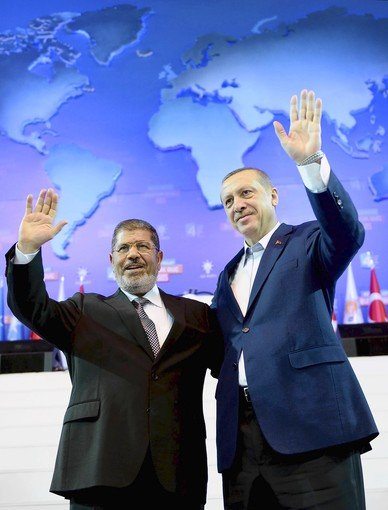
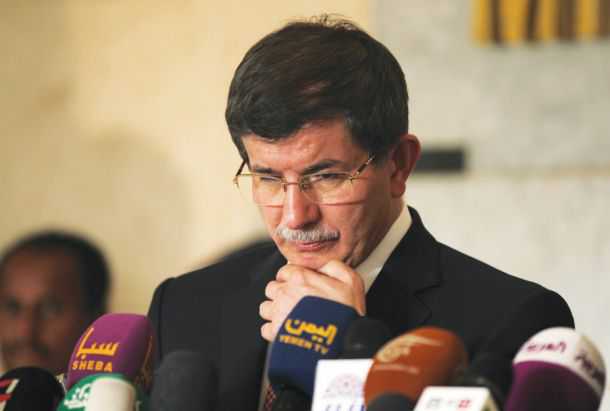
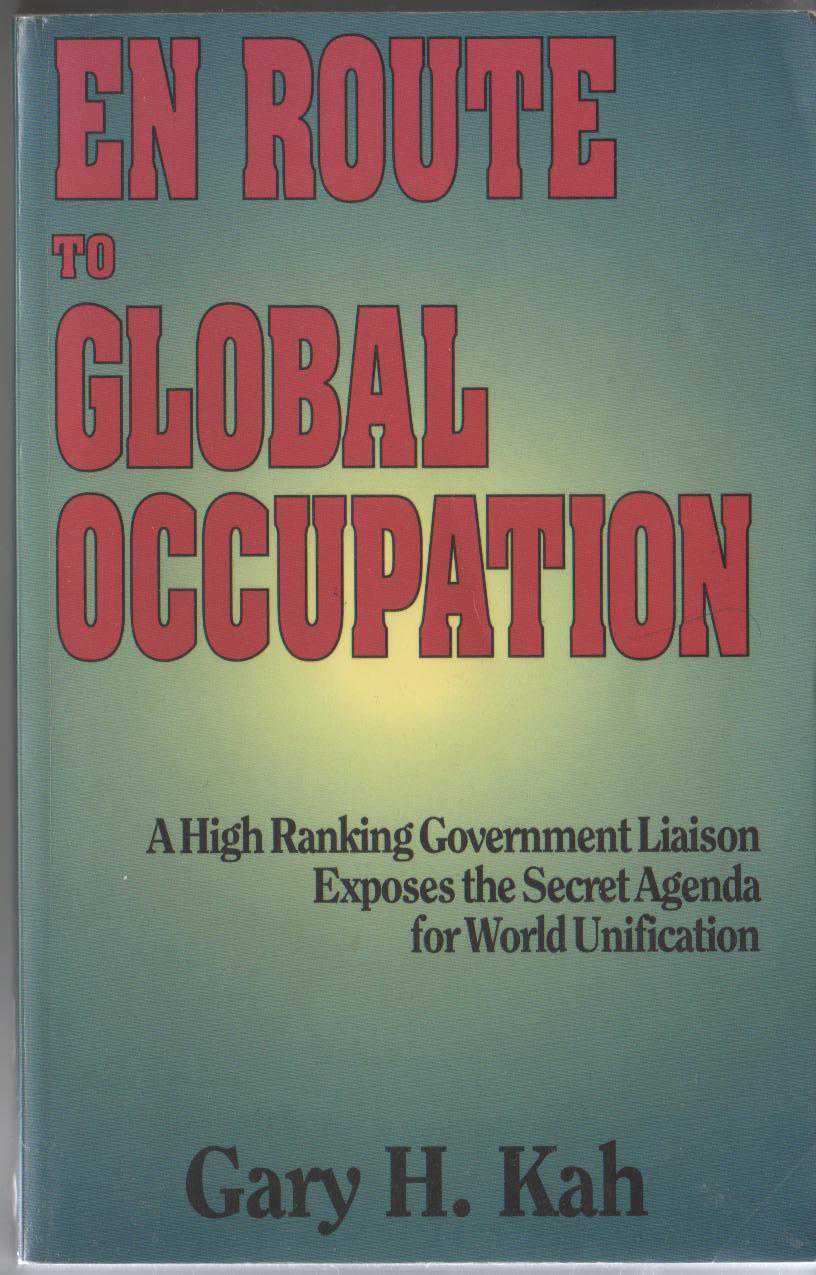
![En Route To Global Occupation [back] En Route To Global Occupation back](https://www.turkishnews.com/en/content/wp-content/uploads/2011/09/En-Route-To-Global-Occupation-back.jpg) (*) It is a pure coincidence that the most powerful figures of the Middle East are Freemasons? Have they been destined to trigger the conflict about which Albert Pike wrote? A prominent Arab Christian leader recently informed me that according to his contacts in Lebanon, King Assad of Syria and King Hussain of Jordan are both Freemasons. If this is true, we could be closer to the New World Order than people realize. (He was uncartain about whetherSaddam Hussain belonged to the same secret society.)
(*) It is a pure coincidence that the most powerful figures of the Middle East are Freemasons? Have they been destined to trigger the conflict about which Albert Pike wrote? A prominent Arab Christian leader recently informed me that according to his contacts in Lebanon, King Assad of Syria and King Hussain of Jordan are both Freemasons. If this is true, we could be closer to the New World Order than people realize. (He was uncartain about whetherSaddam Hussain belonged to the same secret society.)